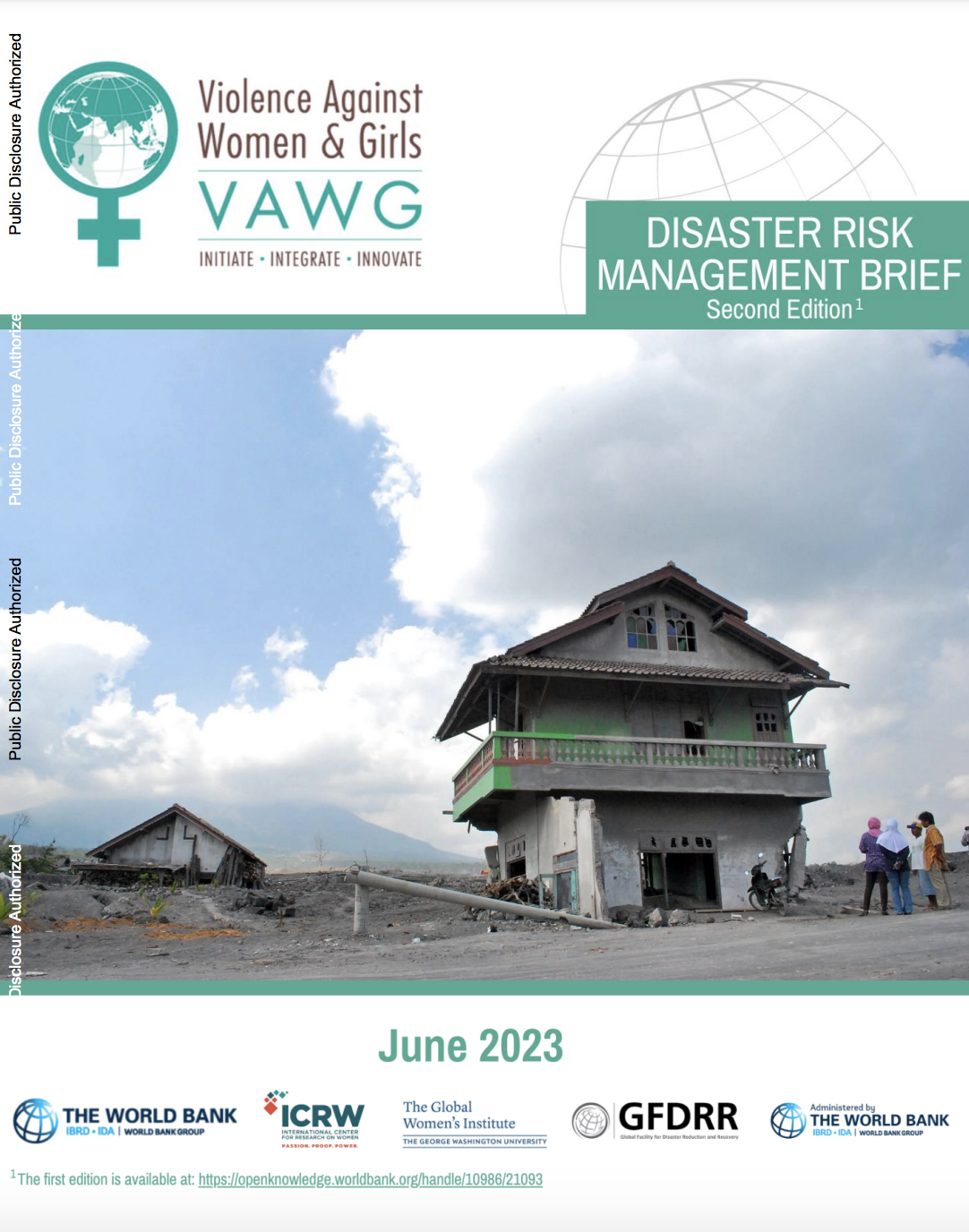Disasters triggered by climate and other natural hazards are increasing in frequency, severity, and duration worldwide. Disasters, whether from natural hazards or man-made, cost lives and livelihoods, and do not have an equal effect on everyone. Women, girls, children, elderly people, persons with disabilities, and indigenous peoples — especially in lower-income countries — are often disproportionately affected by disasters. Emerging evidence suggests that violence against women and girls (VAWG) increases in disaster settings. Managing the growing disaster risks associated with VAWG should therefore be integrated into all aspects of development. This brief, updating the previous DRM brief published in 2015, contains guidance on ethics and safety; resources for conducting a rapid situation analysis; specific ideas for implementation of policies and programs at the institutional, sectoral, and community levels at three stages (before, during and after the emergency); detailed examples of promising practices with a menu of indicators for use in monitoring and evaluation; and several active links to more-detailed resources and toolkits for working at the intersection of DRM and VAWG.
Violence against Women and Girls (VAWG): Disaster Risk Management Brief Second Edition
June 30, 2023

